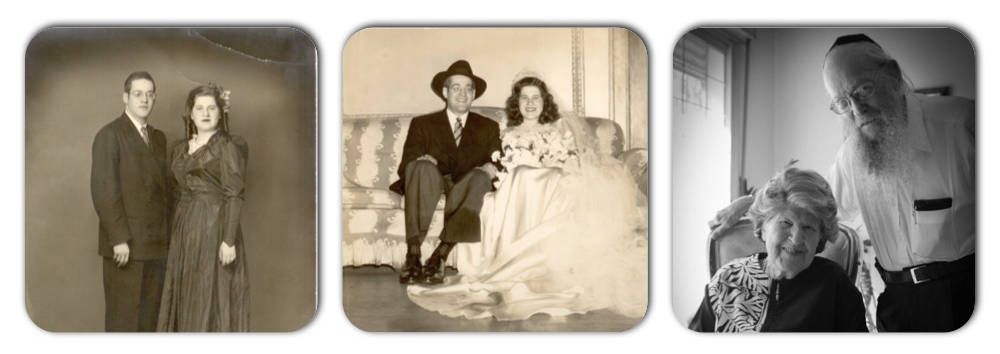A Slice of Life
Editor’s note: In the New York metro area, the response time it takes for emergency medical personnel to arrive after “911” is dialed has cost many lives. The volunteer ambulance corps, Hatzolah, which means “help,” was founded over 30 years ago to alleviate this problem for the Jewish community. The following words delivered by Rabbi Herschel Jacobs will give readers some insight into the tremendous dedication of Hatzolah volunteers.
Hatzolah is an organization that was started by a young man named Herschel Webber over 30 years ago. He was living in the Williamsburg section of Brooklyn, and while he was in shul he saw someone having a heart attack. A call was made for an ambulance, and as usual it took 35-40 minutes. The person died. Herschel said he would never allow that to happen again. He bought an oxygen tank, gave out a phone number, and Hatzolah was born. From there, Hatzolah was brought to Crown Heights, Brooklyn, by Leibel Bistritsky who founded Crown Heights Hatzolah. I’m now in Hatzolah 28 years and I have always considered Leibel my mentor, somebody I look up to and can turn to for advice.
Let me tell you a little about self-sacrifice — mesirat nefesh. Leibel had a small store on the Lower East Side, where I come from. When Leibel received calls, the store could be full of people, but he would run. He would yell, “Watch the store for me till I come back!” Do you understand what that means? A man left his business not knowing what would happen because he knew that somebody needed his help. That’s mesirat nefesh.
Imagine this: it’s the middle of the night. You’re sleeping and the phone rings, waking you up. It’s cold, it’s snowing, but you run out. Chances are, when you get back from the call an hour later and are on your way back to bed, the phone rings and you’re out the door again! You’ve missed a night’s sleep. That’s mesirat nefesh.
Or, it’s Friday night. You get home from shul and sing “Shalom Aleichem” with your family. Your wife has prepared a delicious meal. You pick up the kiddush cup and suddenly your Hatzolah radio goes off and you run out the door. By the time you get back the fish is warm, the soup is cold, and your wife isn’t smiling anymore!
In reality, the Hatzolah wives also have great mesirat nefesh in this matter. When a Hatzolah member helps someone, he at least gets a “thank you.” The wife gets nothing. No one even knows who the Hatzolah wife is. She gets no “thank you” from anybody and she is the one left to handle things alone when her husband runs out the door. And, when the husband comes home and G-d forbid, the call was unsuccessful, he is in a bad mood and she has to console him.
Imagine this scene at Passover. The little children have learned the “Four Questions,” and they are now sitting at the seder table ready to ask the questions. Your in-laws are also at your table. You’re looking forward to eating matza, fulfilling the mitzvot of Pesach, and hearing your children ask the Four Questions. Just then, your radio goes off, you run out the door, and you don’t return home until 2:30 in the morning because you had three calls in a row. By the time you get home, your children are sleeping and your in-laws have started and finished the seder without you. A lonely seder awaits you.
For years I could not get guests to come to my house for the seder! Not that the food isn’t good, because my wife is a wonderful cook. But the guests knew that by Heshy Jacobs the seder would end at four in the morning. I ran out for the first call before sitting down to the seder, so by the time you started it was already 10:30. Then there would be two calls in the middle of the seder.
Did you know that Hatzolah has sixty ambulances? More than Albany or even Buffalo, a city of one million people. Hatzolah today has six hundred volunteers. I think we hit six hundred and thirteen last month. We don’t get one penny of government money; we don’t get a penny from Blue Cross/Blue Shield, Medicaid, or Medicare. Every dollar is raised from the communities that we serve. We are the largest volunteer ambulance corps in the world, not just America.
Last year, over 200,000 calls came into Hatzolah. Twenty-odd years ago I used to check my radio to see if it worked, because sometimes I heard nothing for an entire 8-10 hour shift. Today the radios are silent for barely five minutes.
I remember one Rosh Hashana when I missed most of the shofar blowing because of a Hatzolah call. I returned for the last blasts, very upset at how much I had missed. Afterwards, someone said to me, “Heshy, what’s wrong with you? Do you know what you did for us? When you ran out of the shul and put on the siren, the gates opened up in heaven. All the prayers of the entire Jewish people were able to get in because that siren not only let you through the red lights, it also let us through the heavenly gates. Do you understand the favor that you did?”
May Hashem bring Moshiach soon and we will be able to take these ambulances along with us to Land of Israel and use them only for good things!
L’Chaim – March 7, 1997 – 28 Adar I 5757
